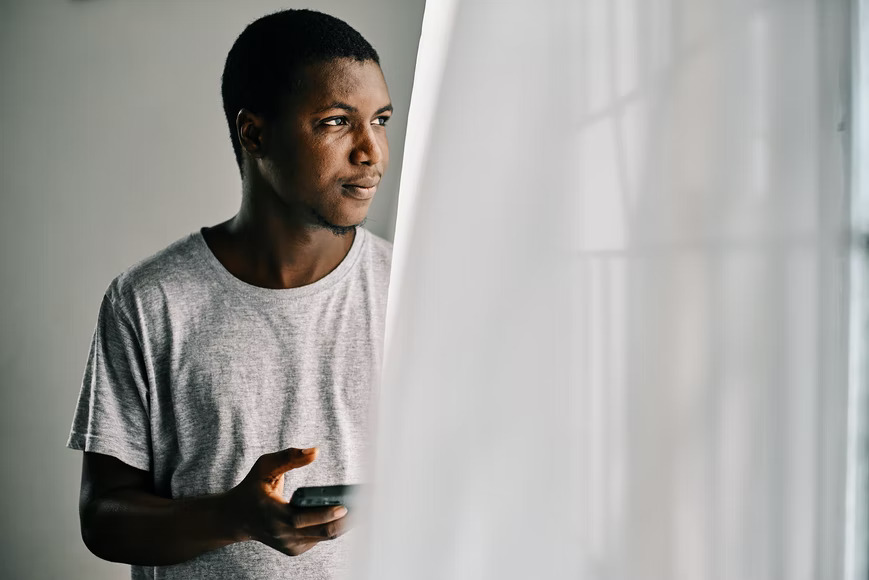Best Anxiety Apps Have a Range of Relaxation Techniques
Relaxation techniques are special exercises developed by psychologists to help us calm down. Traditionally, they have been taught by mental health professionals as part of psychotherapy. Nowadays, you can learn these techniques yourself through an app and practice them whenever you need. Perhaps the most popular technique is mindfulness meditation, which usually involves sitting down in a quiet place and listening to a guided recording. Through this process, you can slow down, observe your breathing and ground yourself in the present moment. This can help you manage unhelpful thoughts and find a more positive perspective during times of stress. There are many types of mindfulness practice; some use positive visualization, others look to promote relaxation with music or soothing words of compassion. We recommend trying out different ones to see what works best for you.
While mindfulness is growing in popularity, not everybody enjoys meditating.
That’s why it’s best to look for apps that offer a range of options. Progressive muscle relaxation is another method proven to ease anxiety by teaching you to systematically relax different muscles. This can be particularly helpful when anxiety affects you physically—for example if you experience panic attacks. If these techniques seem too challenging, you might want to try simple breathing exercises instead. Learning to breathe slowly and deeply into your abdomen can go a long way in calming down anxiety. Many apps offer tools that help you soothe yourself in this way. You can try all of these relaxation techniques using the Mind Ease app.
Top Anxiety Apps Help you Learn about your Mental Health
Apps can bring the greatest benefits when they help us understand our experiences better. By understanding why we feel how we do, we are better able to take care of ourselves and those around us. That’s why we recommend that you look for apps that utilize:
cognitive behavioral therapy (CBT), dialectical behavioral therapy (DBT), or acceptance and commitment therapy (ACT).
These psychological modalities have the most scientific evidence and have been shown to be effective for different types of anxiety as well as many other mental health problems including depression. Apps that are based on these schools of therapy will often teach you helpful techniques in the format of a self-help workbook. For example, Mind Ease has a Self-Compassion exercise that helps you process difficult experiences by adopting a kinder attitude towards yourself. From managing negative thoughts to overcoming anger and improving your productivity, everyone can learn more about their mental health using evidence-based apps.
Journaling in Apps can Support Mental Wellbeing
We all need a space to freely express our thoughts and feelings. That’s why journaling can be a powerful practice to support our wellbeing—and it can easily be done on our phones. There are numerous ways that journaling practice can benefit us.
Improve sleep. If you find that anxiety disrupts your sleep, you may want to consider regularly journaling before bed. By reflecting on the things you worry about, you may be able to reconcile them more easily and let go of them when it’s time to rest.
Practice gratitude. You can use journaling to focus your mind on the positive things around you. For instance, by regularly writing down what you are grateful for, you can strengthen joyful memories and increase your general sense of contentment in life.Reduce conflict. When we get into conflict with others, it’s often because our thoughts and emotions overwhelm us and trigger actions that we later regret. If you get into the habit of journaling about how you feel before you respond, it can help you find a more generous perspective on the other person and soften your reaction to the situation.
As always, it’s good to shop around and find out which app works best for you.
Some apps offer guided journaling that prompt you with interesting questions. Others allow you to write freely about anything that’s on your mind. Either way, getting in the habit of monitoring your thoughts and feelings can bring many benefits to your wellbeing.
An App to Help Monitor your Symptoms and Lifestyle Factors
Another useful strategy for managing anxiety is to track how often you experience different symptoms and what lifestyle factors are affecting them. Many of us are used to tracking things like how many steps we’re doing each day. This can help us understand how physically active we are. The same approach can be useful in many aspects of our lifestyle—you can track how many cigarettes you smoke, how often you drink alcohol or how much time you spend in nature. Reflecting on how these factors change over time and how that might affect your emotions can help you identify where you can make some changes. It also makes it easier to set measurable goals and celebrate every success!
Apps can Help Stop “Doom-Scrolling”
Our phones can be a wonderful source of entertainment and connection, but they can also make our anxiety worse. For example, spending a lot of time on news sites or on social media can be stressful and depressing. And since these platforms are designed to be addictive, we can find ourselves repeatedly clicking and scrolling even when they don’t make us feel good. That’s why it can be helpful to explore tools that can reduce your access to these platforms. For example, Apple’s Screen Time feature can block you from specific apps during certain times of the day. This can be particularly helpful if you know that certain periods, like mornings or evenings, make you more likely to “doom-scroll” and worsen how you feel.
Regular breaks from stressful content can provide significant emotional relief.
It can also give us time for other, more nourishing activities, like going for a walk in nature, playing a musical instrument or talking to a friend. Even if you don’t want to block your access to this information, we recommend reflecting on how the time you’re spending on such platforms makes you feel and whether you could make any changes. As you can see, apps can help our mental health in many ways! It’s just a question of finding the right one for you. Lastly, if you ever feel like you need other forms of emotional support, there is no shame in seeking professional help. You can reach out to a doctor or a therapist in your area or even call a crisis helpline to get immediate assistance.
Author
Tereza Ruzickova is a mental health researcher and writer for the Mind Ease app. She is in training to become a Cognitive Behavioural Therapy (CBT) practitioner. She studied Experimental Psychology at the University of Oxford, where she focused on researching depression treatment. She enjoys dance and yoga.
Δ





